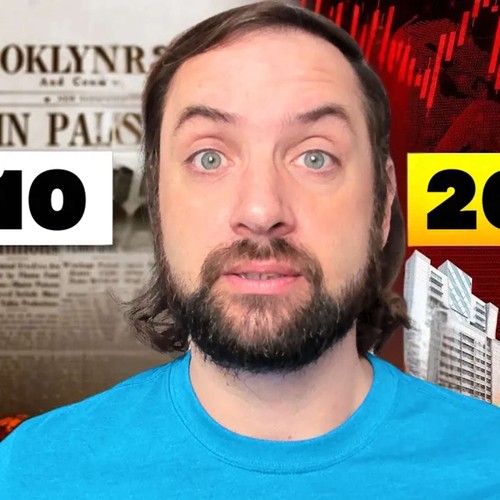
 Eurodollar University
Eurodollar University This Is What Actually Happens After a Recession Starts
7 snips
Jul 27, 2025 The podcast dives into what happens when a recession begins, predicting a downturn in economic stability. It examines the shift from deflationary monetary problems to a potential enduring depression. The discussion includes the long-term effects of deflation, particularly on businesses and banking, highlighting shifts in employer behavior. It also addresses the uncertainties posed by deflation, exploring parallels with past crises and how interest rate changes could shape the future economy. Overall, it’s a thought-provoking analysis of our financial landscape.
AI Snips
Chapters
Transcript
Episode notes
Deflation Causes Long-Term Contraction
- Deflationary monetary outbreaks disrupt economic momentum without requiring full financial meltdowns.
- The negative effects can persist long after the initial shock, shaping long-term economic contraction.
Markets Price Prolonged Low Rates
- Market expectations show interest rates dropping significantly and remaining low for a long time.
- This signals confidence in a prolonged deflationary scenario rather than inflation-focused recovery.
Deflation Alters Monetary Flow Deeply
- Deflation disrupts the flow of money, credit, and collateral, triggering volatility and economic pain.
- Unlike expectations in 2008, deflation led to long-term low interest rates rather than high inflation and quick recovery.
